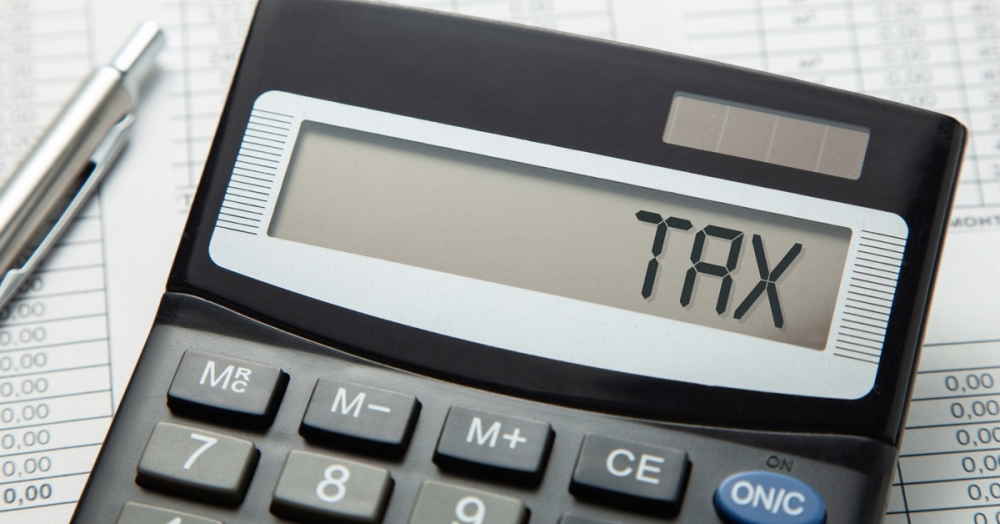
Tax Changes from April 2023: What Landlords Need to Know
Over the last couple of years, the Government has made several changes to how income and profits are taxed. Some of these will take effect from the new tax year on 6th April, with higher earners and those letting via a limited company most affected.

Over the last couple of years, the Government has made several changes to how income and profits are taxed.
Some of these will take effect from the new tax year on 6th April, with higher earners and those letting via a limited company most affected.
Here’s a round-up of what you need to know for this year as a landlord and property investor.
Corporation Tax is rising for companies with profits above £50,000
If you let your properties via a limited company and have annual profits of more than £50,000, you need to be aware that the rates are rising.
Currently, Corporation Tax is 19%, but this is increasing to 25% from April for companies with profits above £250,000. Profits between £50,001 and £250,000 will be taxed at a graduated rate through marginal relief applied to the 25% rate, while companies making up to £50,000 in profit will continue to be taxed at 19%.
Dividend Allowance reducing
If you receive dividend income from shares, you need to know that the tax-free allowance is being cut from £2,000 to £1,000 for the 2023/24 tax year and then to £500 for the 2024/25 tax year.
Personal Allowance remains at £12,570
While this isn’t a change for 2023, it is a change from the norm.
Usually, the Personal Allowance goes up each year to reflect inflation in order to maintain the value of the allowance.
But to help recoup some of the money spent on the pandemic, the Chancellor froze the Personal Allowance at the 2021/22 level – initially for five years until 2026, which was extended to 2027/8 in last November’s Autumn Statement.
So, for the third year, the amount you can earn before paying tax in 2023/24 is £12,570.
Unfortunately, this means that over the next few years, as the cost of living rises through inflation, the real-world value of your tax-free allowance will continue to fall.
Top rate tax threshold dropping from £150,000 to £125,140
From April, the additional rate tax threshold is dropping to £125,140, and earnings over that level will be taxed at 45p.
So those earning over £150,000 will pay 5p more in tax on £24,861 and see their tax bill rise by £1,243.
For more information on allowances, income tax rate, and bands, visit the GOV.UK website.
Capital Gains Tax annual exempt amount being cut
If you plan to sell property soon, you must budget for the CGT tax-free allowance to drop significantly over the next two tax years.
For 2023/24, it’s being reduced from the current £12,300 to £6,000, in April 2024, it will drop again to £3,000.
That means for anyone with gains above the allowance, CGT will be payable on an additional £9,300 by the 2024/25 tax year – that’s an extra £1,674 on the tax bill for basic-rate taxpayers and £2,604 more for those in the higher-rate bracket.
Here’s an example of how your tax bill for a gain of £40,000 would change
Tax year reportedTax-freeTaxableTax at 18%Tax at 28%
Tax year reported Tax-free Taxable Tax at 18% Tax at 28%
2022/23 £12,300 £27,700 £4,986 £7,756
2023/24 £6,000 £34,000 £6,120 £9,520
2024/25 £3,000 £37,000 £6,660 £10,360
Finally, here’s one more change to be aware of:
Making Tax Digital (MTD) plan amended
This online-only tax filing system was originally due to take effect in April this year for those who earn over £10,000 and submit Self Assessment returns.
However, the planned introduction was delayed by a year due to the impact of the pandemic, and then, in December 2022, the Government changed its plans for MTD again.
As it now stands, self-employed individuals and landlords will have to submit quarterly returns to HMRC via MTD-compatible software:
- From 6th April 2026, if their annual property or business income is more than £50,000
- From 6th April 2027, if they earn between £30,000 and £50,000
A pilot scheme is already underway, so if your income is above £30,000, it might be worth looking into the available software options and speaking to either your financial adviser or a property tax expert to ensure you’re prepared for when the requirement comes into force.
Those earning under £30,000 will not be required to use the MTD system until a Government review has been completed.
It’s essential to protect your rental profits by controlling your costs and aiming to increase your tenants’ rent each year.
Source: propertynotify.co.uk